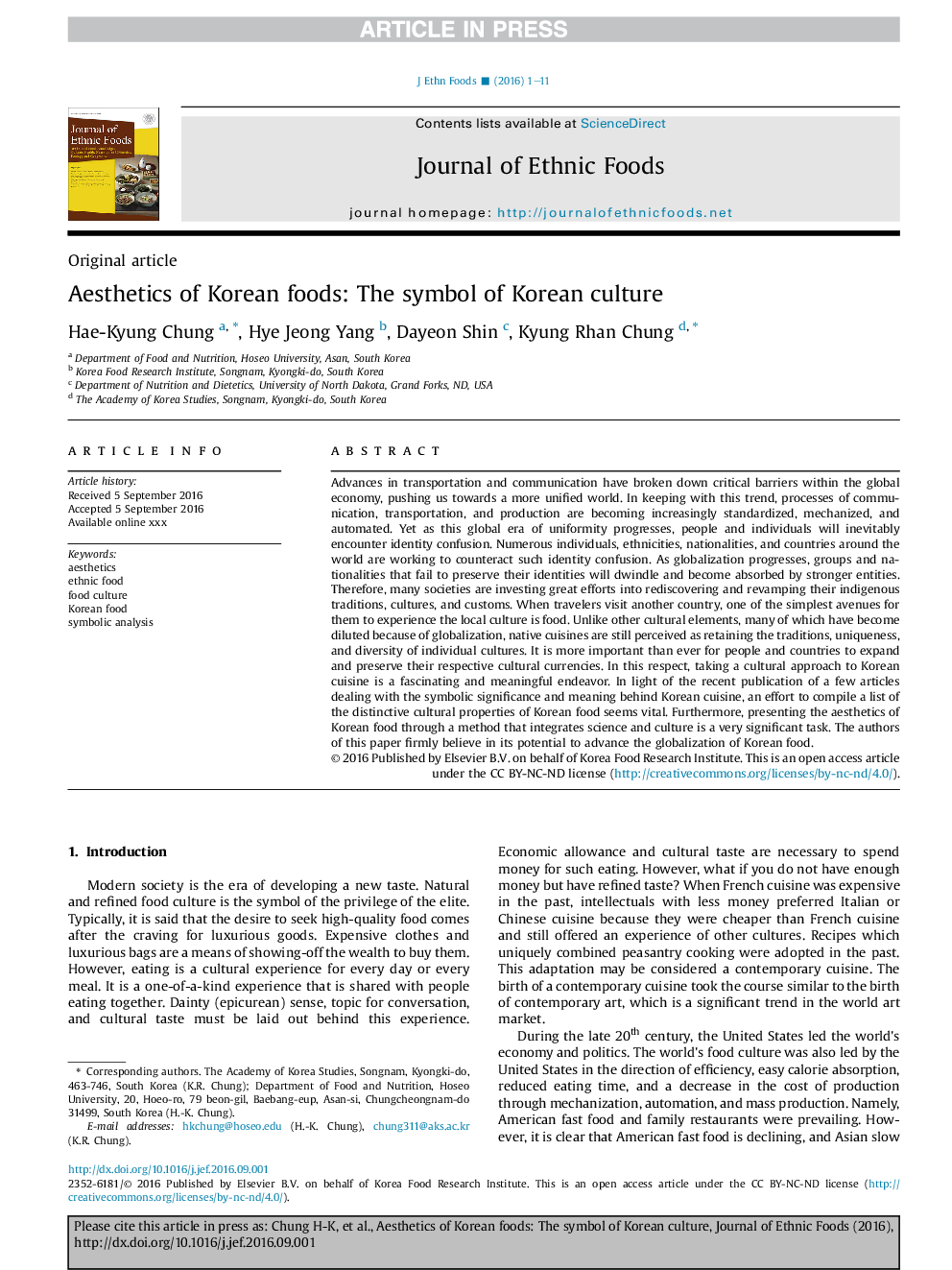| Article ID | Journal | Published Year | Pages | File Type |
|---|---|---|---|---|
| 8589086 | Journal of Ethnic Foods | 2016 | 11 Pages |
Abstract
Advances in transportation and communication have broken down critical barriers within the global economy, pushing us towards a more unified world. In keeping with this trend, processes of communication, transportation, and production are becoming increasingly standardized, mechanized, and automated. Yet as this global era of uniformity progresses, people and individuals will inevitably encounter identity confusion. Numerous individuals, ethnicities, nationalities, and countries around the world are working to counteract such identity confusion. As globalization progresses, groups and nationalities that fail to preserve their identities will dwindle and become absorbed by stronger entities. Therefore, many societies are investing great efforts into rediscovering and revamping their indigenous traditions, cultures, and customs. When travelers visit another country, one of the simplest avenues for them to experience the local culture is food. Unlike other cultural elements, many of which have become diluted because of globalization, native cuisines are still perceived as retaining the traditions, uniqueness, and diversity of individual cultures. It is more important than ever for people and countries to expand and preserve their respective cultural currencies. In this respect, taking a cultural approach to Korean cuisine is a fascinating and meaningful endeavor. In light of the recent publication of a few articles dealing with the symbolic significance and meaning behind Korean cuisine, an effort to compile a list of the distinctive cultural properties of Korean food seems vital. Furthermore, presenting the aesthetics of Korean food through a method that integrates science and culture is a very significant task. The authors of this paper firmly believe in its potential to advance the globalization of Korean food.
Related Topics
Life Sciences
Agricultural and Biological Sciences
Food Science
Authors
Hae-Kyung Chung, Hye Jeong Yang, Dayeon Shin, Kyung Rhan Chung,
